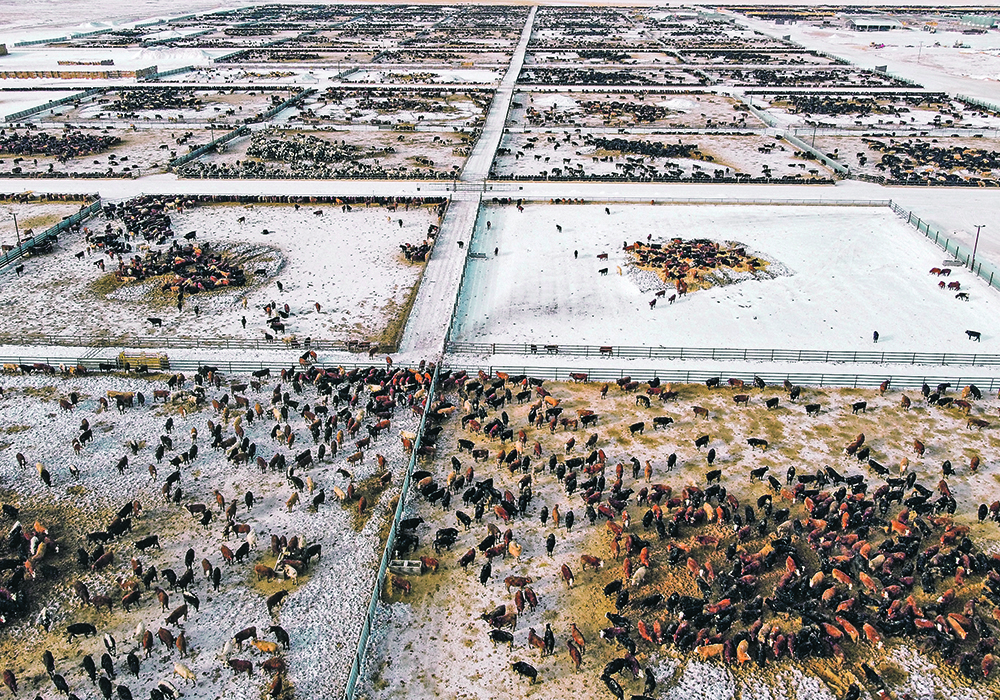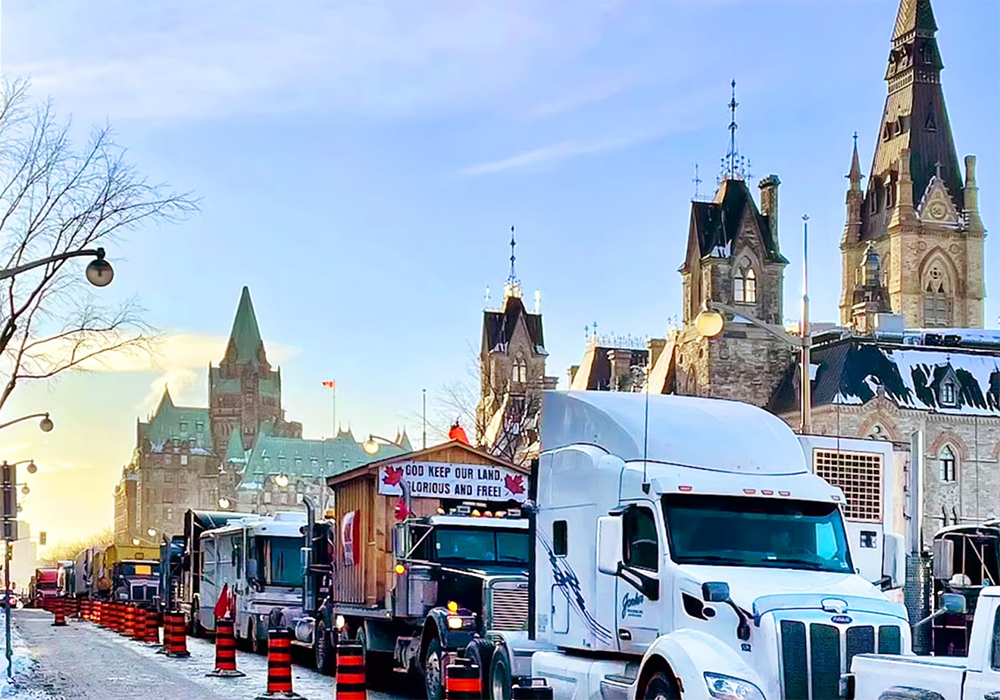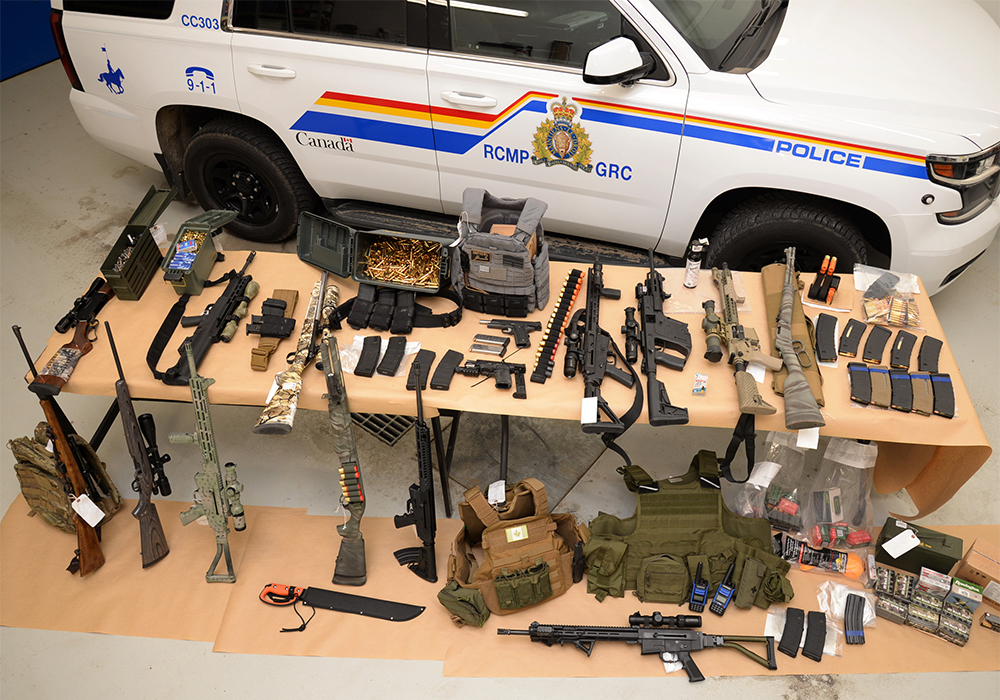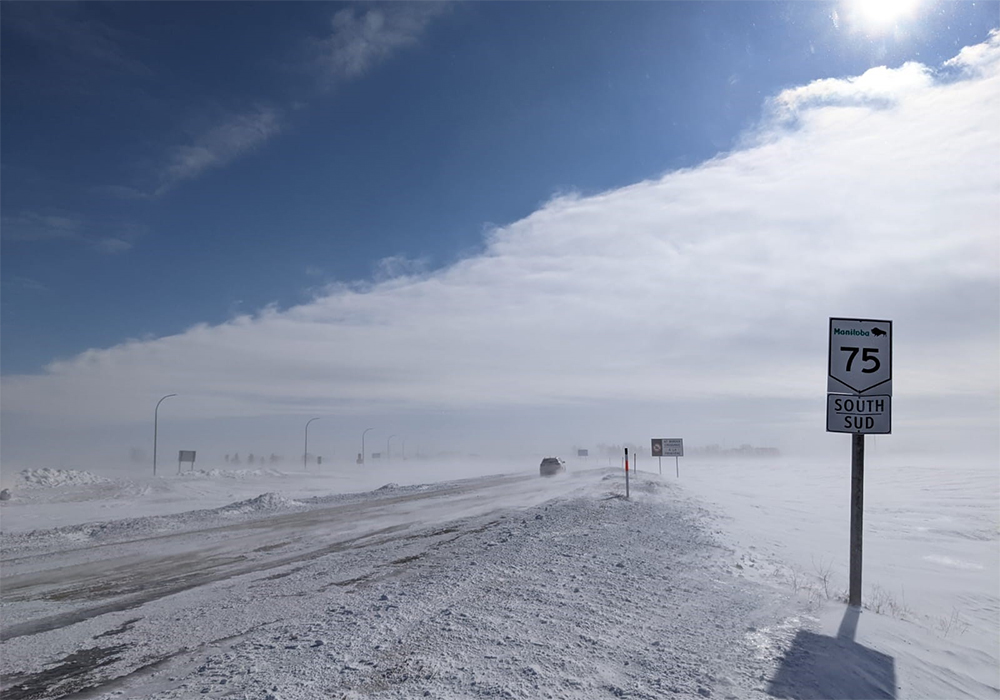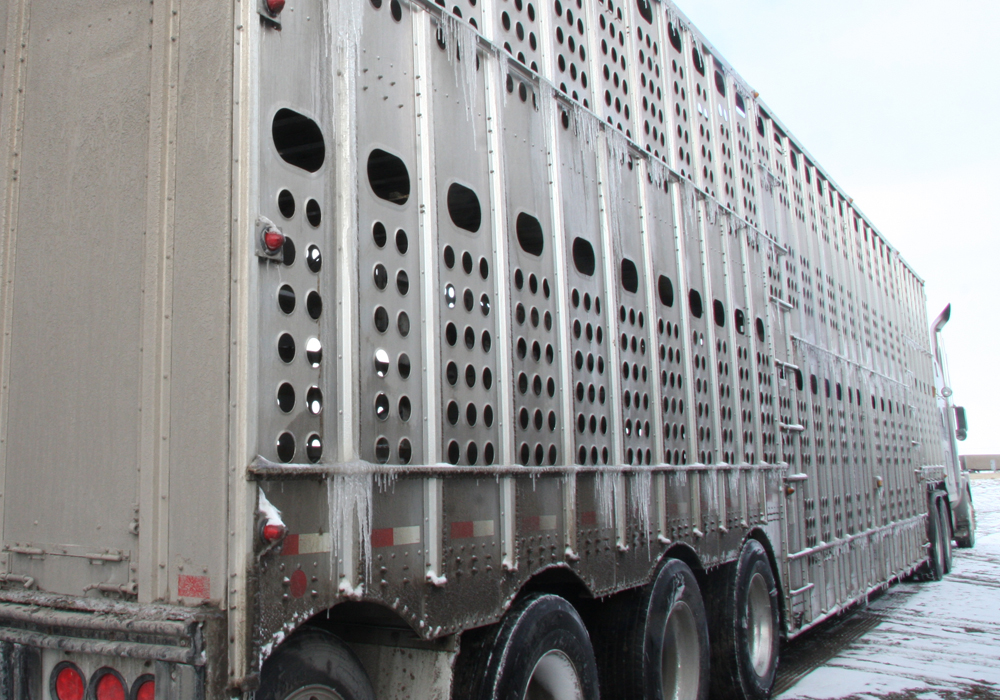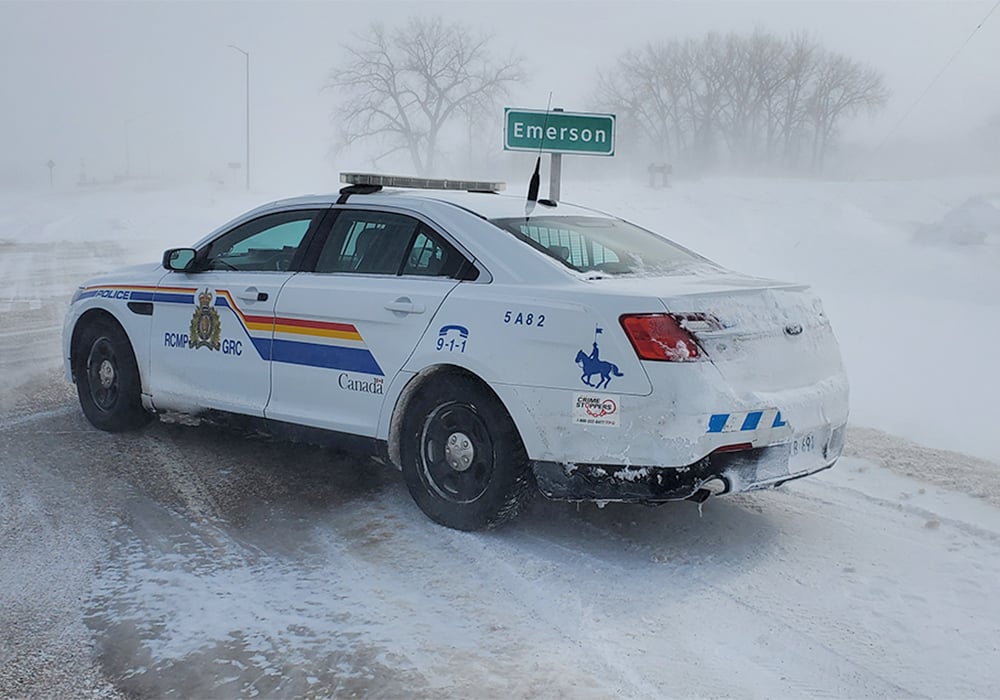Canadian Border Services Agency suspended operations at the Coutts, Alta., border crossing Feb. 12 amid a highway blockade and ongoing protests against pandemic health restrictions. The ripple effects have hit Canada’s largest beef producing region and have potential to negatively affect a wider prairie agricultural sector already dealing with supply-chain issues and lingering fallout from drought.
Lloydminster, Sask.-area grain farmer Caleb Toews said he’s taking part in the Coutts blockade while fully aware of those effects.
His message to producer groups calling for an end to the blockade is plain.
“For me, it’s not about the markets. Obviously as a producer I want to have good markets. I want to be able to have a profitable farm,” said Toews.
“But if our freedoms are at stake — if our profits are high but we have no freedom — I would rather have freedom and be broke. I would rather live in a cardboard box and feed my kids rabbits and squirrels but be free to do what we choose to do.”
The blockade was initially set up at Coutts on Jan. 29 to pressure the provincial and federal governments to drop pandemic-related public health restrictions.
Alberta Premier Jason Kenney lifted two of the most contested restrictions on Feb. 8 — the provincial vaccine passport and a requirement for school children to wear masks.
Kenney promised a plan to further ease pandemic mandates in coming weeks.
Coutts border protesters greeted his announcement by halting traffic on the highway in a blockade that had previously slowed but not prevented passage of traffic.
Toews and others who made speeches at a Milk River protest site established north of Coutts told The Western Producer that they want larger reforms.
“I think It ends when we aren’t ruled by the World Economic Forum and we get out of the UN and we have not a government for the people but a government of the people,” said Toews.
“The people are the ones who are in charge … government works for us instead of us doing what they say.”
Immediately ending all provincial pandemic restrictions could ease the impasse between government and protesters, he added.
“We need to stick together,” said Toews of those in the agricultural sector. “We need to be OK with our markets being affected and our freedoms need to be our priority and not bank accounts.”
As for beef producers and cattle operations unable to move live cattle south of the border, Toews indicated protesters would allow passage. However, protest organizers asked about that, and about other ramifications for the agriculture industry caused by their actions, rebuffed any queries.
Those organizers are believed to be farmers from the region, though many outside the Coutts Smuggler’s Saloon headquarters indicated they are not involved in the agricultural sector.
RCMP arrested several individuals in Coutts Feb. 14 after executing search warrants and seizing guns, body armour and ammunition from what they described as a militant faction of the protest.
Effects of the border protest are serious for Canada’s beef industry, said Canadian Cattlemen’s Association president Bob Lowe.
The JBS and Cargill beef processing plants, which collectively represent two-thirds of the national beef processing capacity, have reduced the number of shifts as their storage fills with beef that is not being shipped to the United States through the closest international port of entry at Coutts.
Lowe said the border protest is hindering trade in agriculture and specifically in the cattle industry.
“We need to have these borders open for north-south trade. That’s what keeps us alive,” said Lowe. Boxed beef and live cattle shipments going south and feed coming north are all affected.
“We have a lot of cattle around us and a lot of them are ready to be processed. We need to do everything we can possibly do to keep these packers going as hard as they can go,” said Lowe.
The trickle-down effect of the blockage will likely reduce cattle prices, he added.
Alberta Beef Producer chair Melanie Wowk said those in the cattle industry who support the actions of the blockaders should look at the bigger picture, not one that pits packers, feedlot operators or cow-calf ranchers against one another.
“At the end of the day, we all have to be healthy. We all have to make money along this chain,” said Wowk. “To villainize anybody along it — I just don’t see it as progressing as an industry that way. I think we have to stop with the mentality of ‘we’re three different sectors’.”
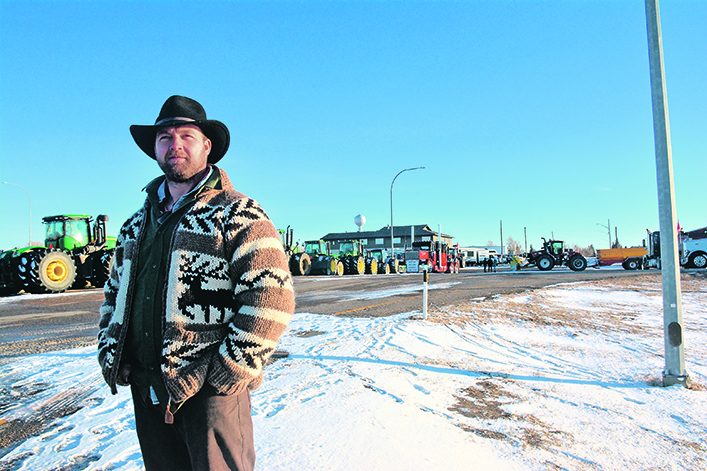
Kenney has described the effects of the blockade on the agricultural sector as “pretty modest.”
He said the government has been working with law enforcement and border officials to increase access at other ports so goods can flow.
“The export situation has been largely unaffected but there is great frustration because of the uncertainty and inconvenience,” said Kenney during a Feb. 14 press conference.
Imports are more problematic, “because CBSA (Canadian Border Services Agency) only has a facility at Coutts and they’ve been less flexible,” than their U.S. counterparts, said Kenney.


